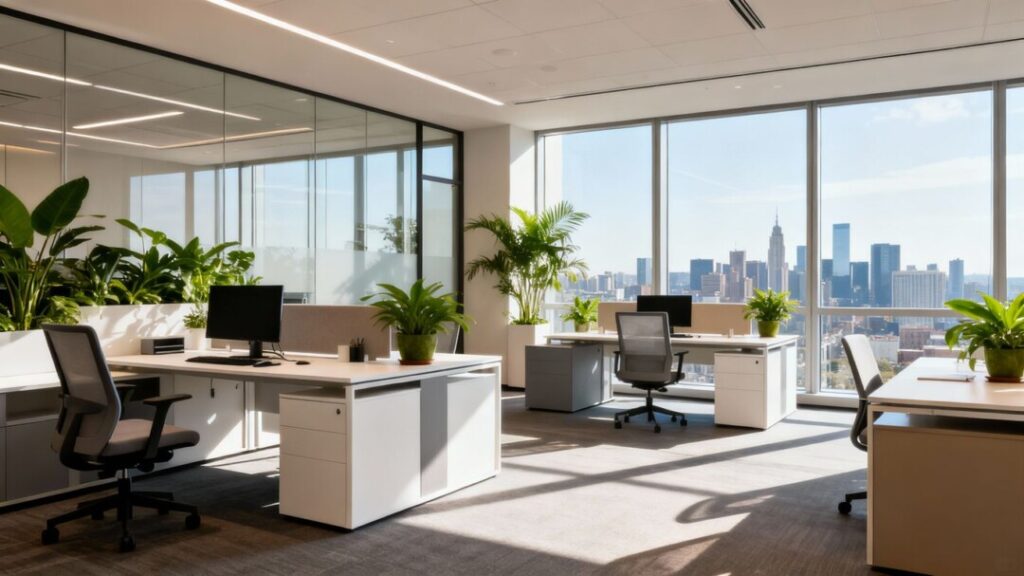Choosing the right office space is a critical decision that can significantly impact a company’s trajectory. Business owners must invest time and thorough research to find a location that not only meets current operational needs but also offers flexibility for future expansion. This guide outlines essential factors to evaluate when selecting a commercial property.
Key Takeaways
- Location is paramount for client accessibility and employee commute.
- Future growth potential should be a primary consideration.
- Technological capabilities and overall functionality are crucial for efficiency.
- Accessibility for all individuals and budget constraints are vital.
Strategic Location Matters
The placement of your office can be a significant driver of growth. Prioritize areas easily accessible to your most valued clients, especially if your business involves frequent in-person meetings. Consider the impact of a new location on your employees’ daily commutes; a move that drastically increases travel time might lead to workforce attrition. Ideally, select a new space that maintains proximity to your original location to retain staff while improving client access.
Planning for Expansion
Your office space should be adaptable to your company’s evolving needs. Anticipate future growth by selecting a space that can comfortably accommodate an expanding team. Adequate room prevents overcrowding and reduces the likelihood of frequent, disruptive relocations as your business flourishes.
Embracing Technological Needs
In today’s business environment, technology is indispensable. Ensure your chosen office space is equipped to support your technological infrastructure. Meeting rooms and common areas should be outfitted to accommodate essential equipment like televisions, phones, and computers, facilitating efficient operations.
Prioritizing Functionality and Workflow
Functionality is arguably the most critical aspect. The layout and design of the office should directly support your company’s daily operations and promote efficiency. Opting for a more adaptable, less customized space initially allows for renovations tailored to your specific workflow. Consider how desks and individual workspaces can be arranged, and whether the space supports collaborative projects or frequent large meetings.
Ensuring Universal Accessibility
Beyond functionality, consider the accessibility of the space for everyone, including individuals with disabilities. Features like accessible entrances, ramps, elevators, and parking are essential for inclusivity. Also, evaluate the ease of access via public transportation, as not all visitors will arrive by car. A more inclusive environment can contribute to faster business growth.
Budgetary Considerations
Securing the ideal office space without exceeding your budget requires careful planning. Establish a clear budget before you begin your search, potentially by analyzing your company’s annual profits and breaking down monthly expenses. Remember to factor in additional costs such as utilities, Wi-Fi, and waste management for each potential property.
Evaluating Additional Amenities
Some office spaces, particularly those within larger complexes, may offer attractive amenities like on-site gyms, cafeterias, or parking. While these can be beneficial perks for employees, they should be considered secondary to the core functional and locational aspects of the space. Prioritize the essential needs of your business first, viewing amenities as a welcome bonus.


